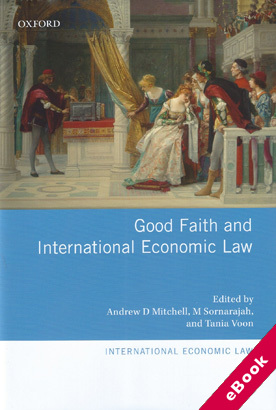
The device(s) you use to access the eBook content must be authorized with an Adobe ID before you download the product otherwise it will fail to register correctly.
For further information see https://www.wildy.com/ebook-formats
Once the order is confirmed an automated e-mail will be sent to you to allow you to download the eBook.
All eBooks are supplied firm sale and cannot be returned. If you believe there is a fault with your eBook then contact us on ebooks@wildy.com and we will help in resolving the issue. This does not affect your statutory rights.
The past two decades have seen a significant proliferation of trade and investment treaties around the world. States are increasingly negotiating agreements that regulate both trade and investment, such as the Trans-Pacific Partnership Agreement and the Transatlantic Trade and Investment Partnership.
The number of investor-state dispute settlement cases is growing dramatically each year, yet states' enthusiasm for investor-state arbitration has become more qualified as concern has intensified that the system can be abused by foreign investors. Good faith is therefore becoming increasingly important as a principle, particularly in the investment context, due to disputes about investor conduct such as corporate restructuring in order to gain the protection of a particular investment treaty regarding an existing or foreseeable dispute, and States' responses to public policy concerns through attempts to modify or terminate investment treaties in the face of ongoing or expected claims. Tribunals adjudicating investment disputes have used the principle of good faith in a haphazard and uncoordinated manner, causing serious problems of uncertainty and inconsistency.
In response to these developments, this book contains the first comprehensive and integrated analysis of the treatment of good faith in international investment law, noting the broader implications of good faith in public international law and international trade law.